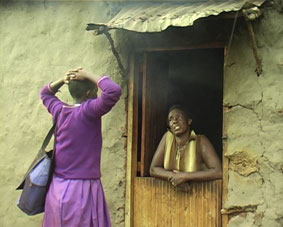Afya Yangu. It's my Right!
|
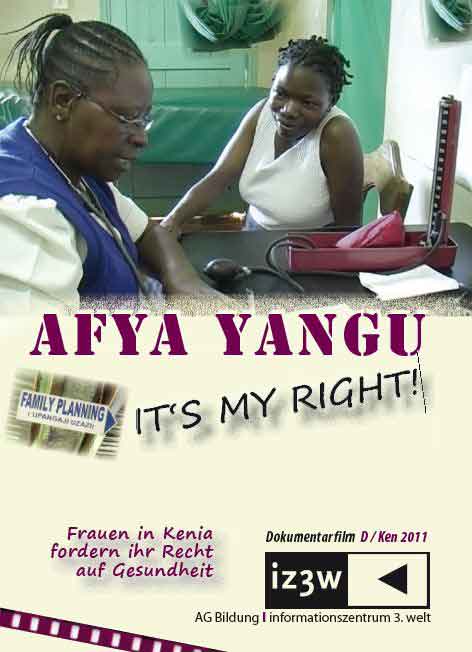 Mini DV / PAL 4:3 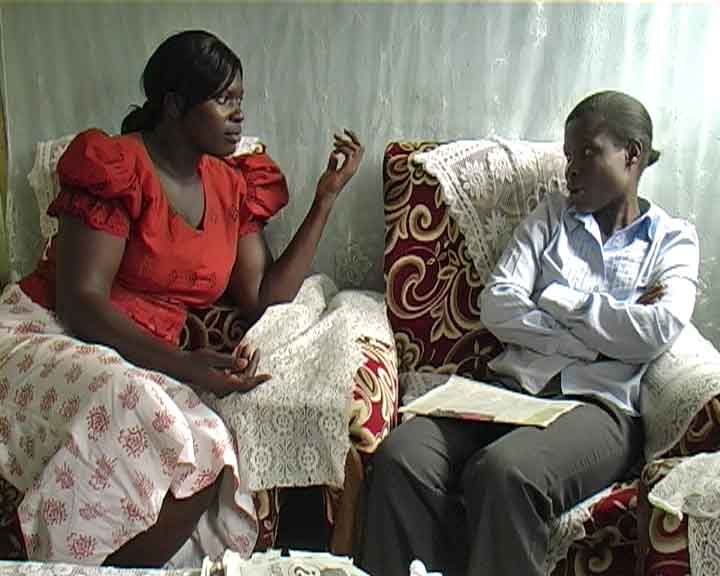
|
Gertrude Wegulu on gender roles and women's roles Men are not so much participating in family planning. Very few. The highest percentage is just for women. Men, they think, that is the work for the women, not for them. Some people believe they have to deliver at home to be called woman enough. They feel that when a woman gives birth in the hospital she fear delivery. But that one who gives birth at home is a woman indeed. They think when you deliver at home you are a hero. |
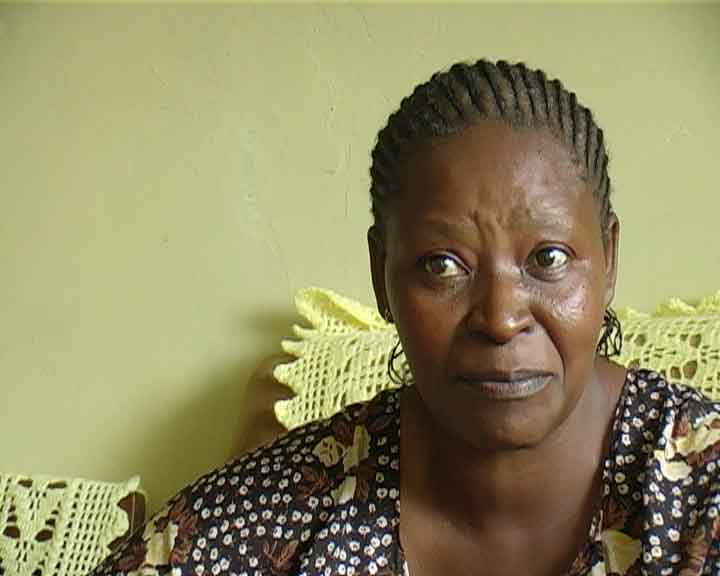 |
Gertrude Wegulu about her work as a nurse
The most common complications I have observed is Anaemia. And unwanted pregnancies are a problem. This ones caused by rape. Once a women is raped and does not like the man obviously, psychologically she will not love the child, she will not love the pregnancy. Because it is shameful.
|
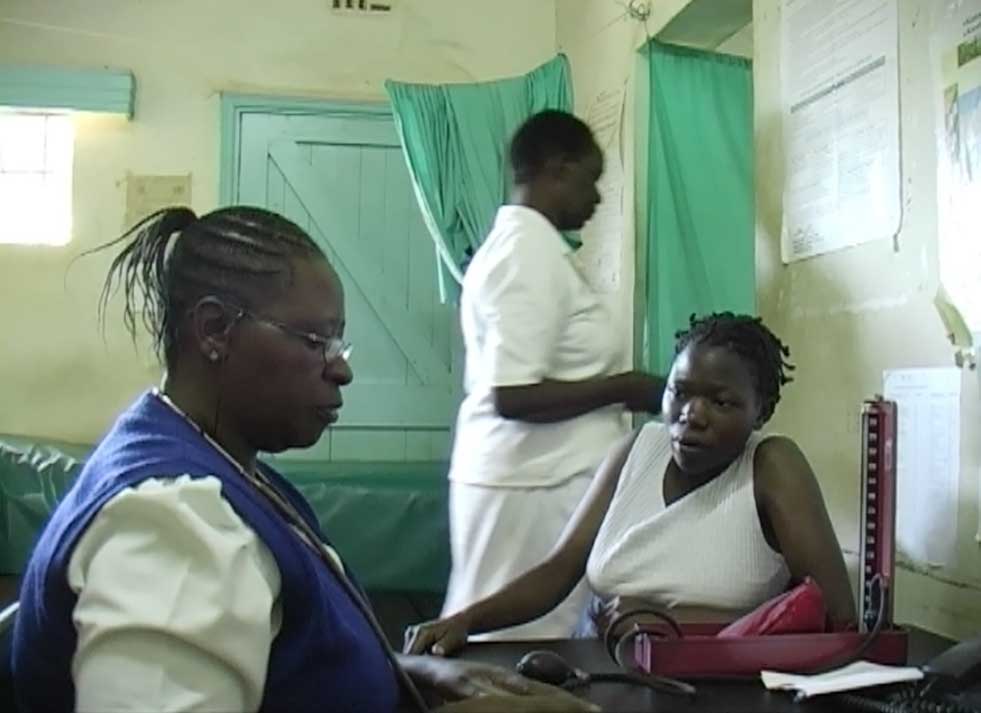 |
Rebecca Nyongesa on abortion It is better for you to give birth rather than going for abortion, because you have so many disadvantages of abortion. |
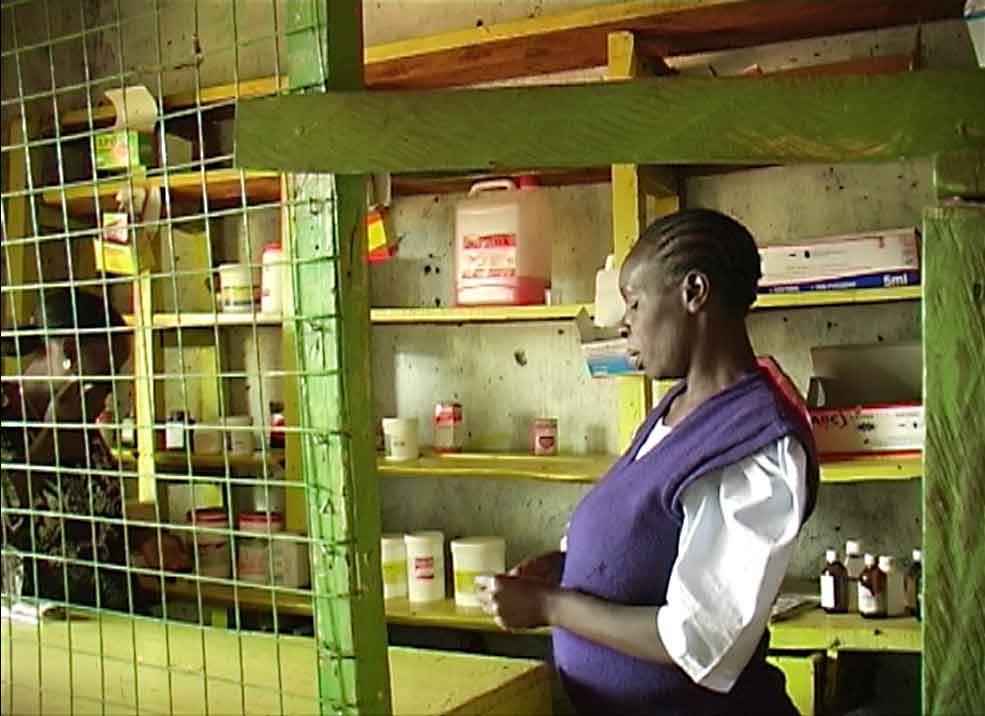
|
Frida Wafula about family planning The best traditional method for FP is after you are through with your menstrual period is just to avoid having sex with your husband. To count, that is the calendar method, you count some days or just keep off for some time, and then when you come together the fertile period will be over. And that is the best that will not involve any medicine or any precaution. As long as you understand each other that is the best traditional method that I can advice!Â&xnbsp; |
 |
Esther Mwaura on abortion law Abortion is illegal! For poor people it's done by no professionals in very hidden situations in the back streets in the cities, in the back streets in the slums. And so most of the women trying to have illegal abortions actually are dying. Because the Government Hospitals they haven't allowed. Society has made it look like evil to speak about abortion, to speak about Human Rights of Women! Once you openly and comprehensively talk about Reproductive Rights of Women, then the issue of Abortion doesn't look like criminalised!Â&xnbsp; |
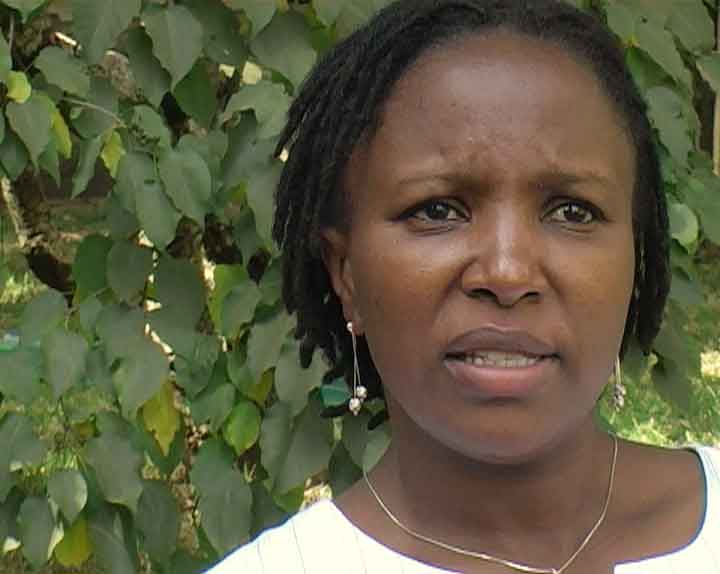 |
Elphas Kahi about stigmatization There are unwanted pregnancies, especially in cases of rape. In such situations you realise if the kid is born the kid might be subjected to stigmatization in the community, the mother is stigmatized and it creates a lot of uncertainty. You might be chased away from the home, they say 'that is not our kid, that is not our blood, as stupid as the person who raped your mother'. Or you argue and then you are called a product of rape. So in some situations I see abortion can be allowed in a way or the other - sometimes we are forced to do away with the fetus. |
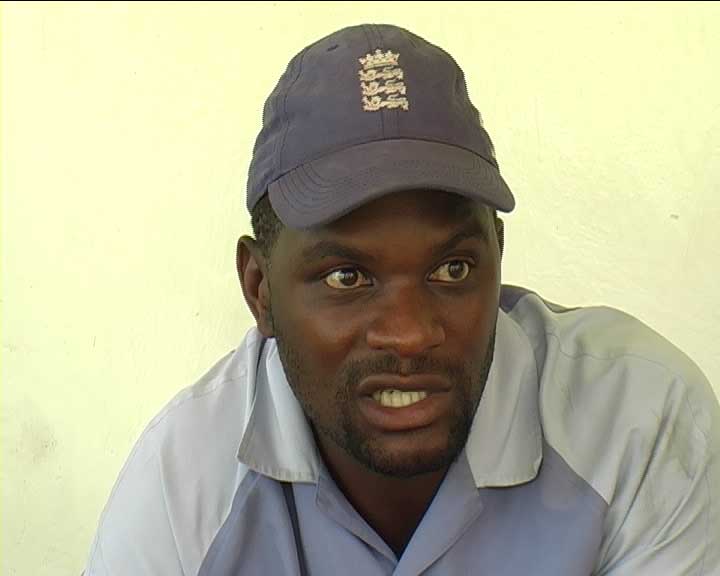 |
Gull Nyongesa about her son I heard a cry from somewhere. It came from the bush. When I went there I found a blanket. There was a new born child wrapped in clothes, lying in the bush. Alone. |
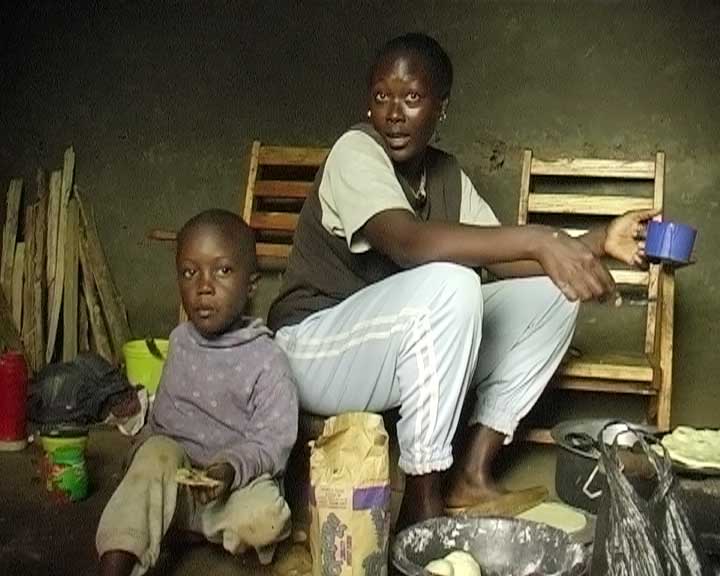 |
Elisa asking... But please, teacher, tell me, how does it come that some girls don't see their monthly period even at the age of sixteen? |
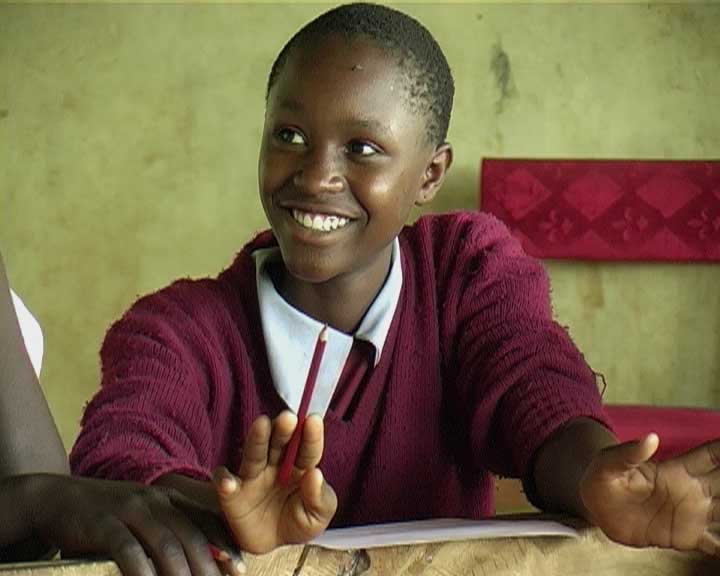 |
Susan Wanyonyi about contraception People take this pills or they take contraceptive pills as if they are eating beans and maize. A friend just started using those pills as if you are eating beans and maize! And she even takes overdose! And as you know: When you use something overdose it becomes a what? It becomes a poison! Women have been discouraging about some pills, some condoms, they don't want to use them due to the rumours that - maybe - when you use a contraceptive you become infertile completely! And as a barren women, you will be stigmatized so much! |
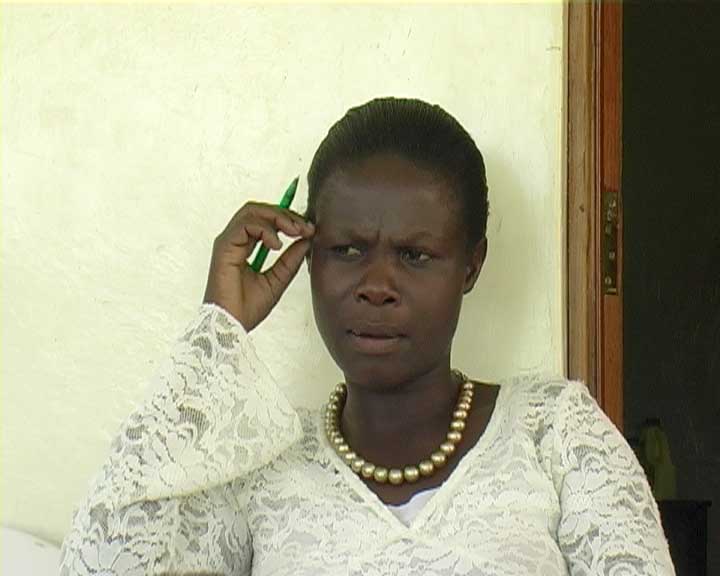 |
Edith Mutonyi about her marriage agreement When my second husband intended to marry, I asked him to sit down on the table and listen. I told him, I got twins, and you know, it is likely that I will have twins again. So I need to have a contract. First, in case I will give birth to twins again, you must accept. And second, after giving birth again I will close that chapter. Can you agree? And he agreed. The contract is there. So I gave birth to twins twice. Then I closed that chapter. |
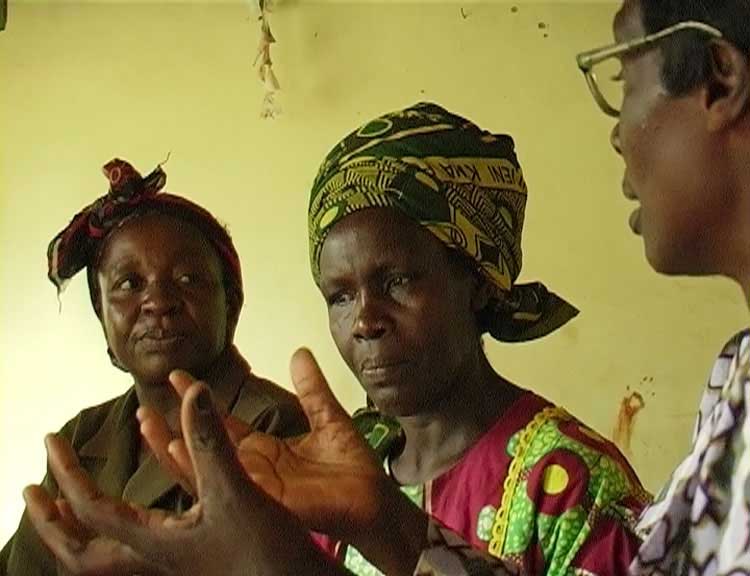 |
Elisabeth Muliro about her last pregnancy I never intended to get pregnant after my fifthborn. I've been using contraceptives, but I found myself pregnant! I carried the pregnancy. As a married mother I could not think of abortion. But now the effect was too bad for me! Just because I've used pills for 8 years, I conceived in the 9th year, and I conceived while I'm still using that pill! Now the hormones in the body reacted to that and caused me to have high blood pressure and let me be on bed rest throughout the pregnancy! I could not do anything! |
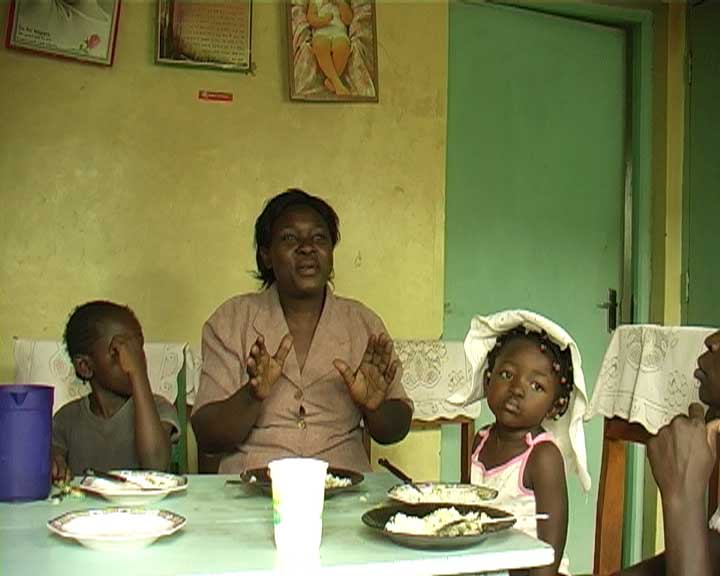 |
Elisabeth Muliro about sterilisation I only hope that the chapter is closed! Meaning they had to do tubal ligation (sterilization)! Because I sent for it when I willed to get up, and I only up to now believe that it was done! If it wasn't done then I don't know! But I believe it was done! And I pray that it was done! |
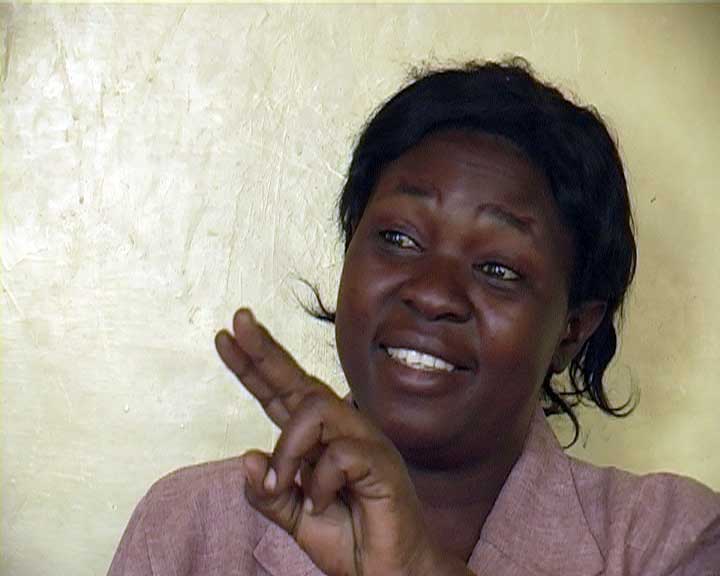 |
Edith Mutonyi comment on her first interview It is good. I didn't know that I had such a courage. |
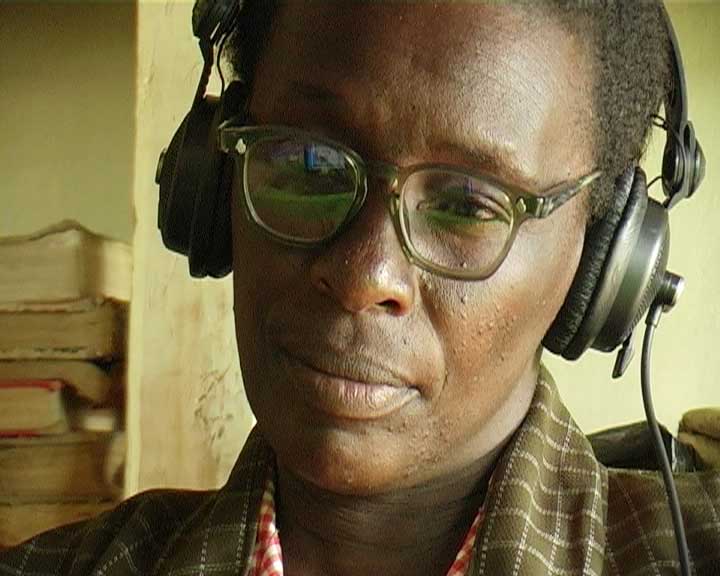 |
Mama Liz about her first pregnancy I got married when I was eighteen years. I stayed for three month, then I got pregnant. But I misscarried. The following year I gave birth to a son. There were no hospitals. I just delivered alone in the house. And I continued like that, I never sought any assistance, I never went to hospital. In total I have 17 children, those I delivered. Nine girls and eight boys. Out of 17 children I had lost three boys who died and one girl. |
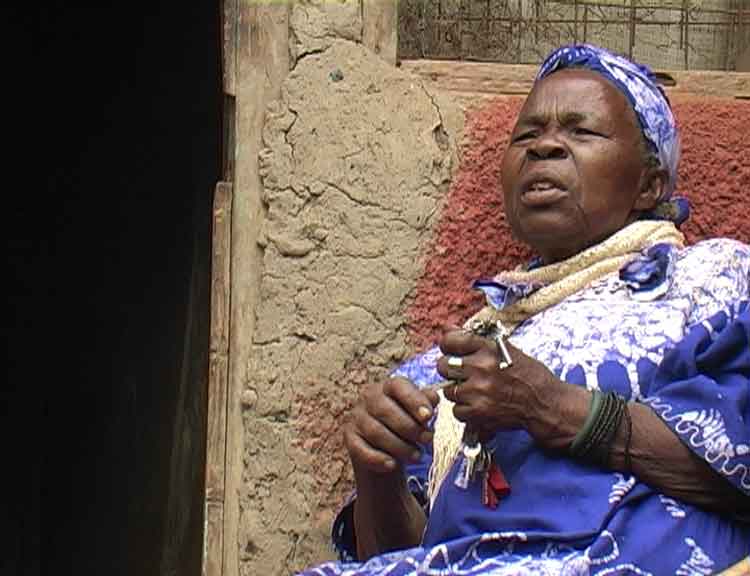 |
Violet Shivutse (Groots Kenya) about women's rights We have so many orphans. Because of HIV, because of marital rape, because of rape and stigmatization. And there are so many single mothers, many widows, and young mothers. They are denied their rights. But we fight their rights. If the lawyers will not accept, we will even get assistance from international women lawyers. |
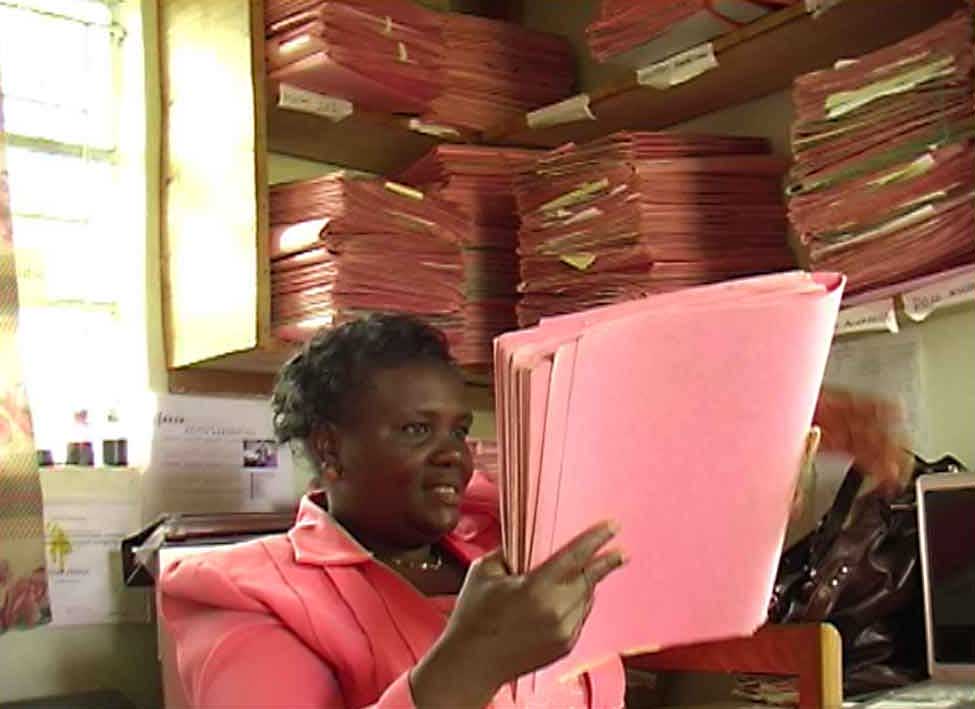 |
Terry Mbakaya about gender roles Some communities usually said that a woman's work is to give birth! Never stop... They never cared if she is weak, if she is not in that position of even giving birth to healthy children. They just say: A woman's work is to give birth to many children! |
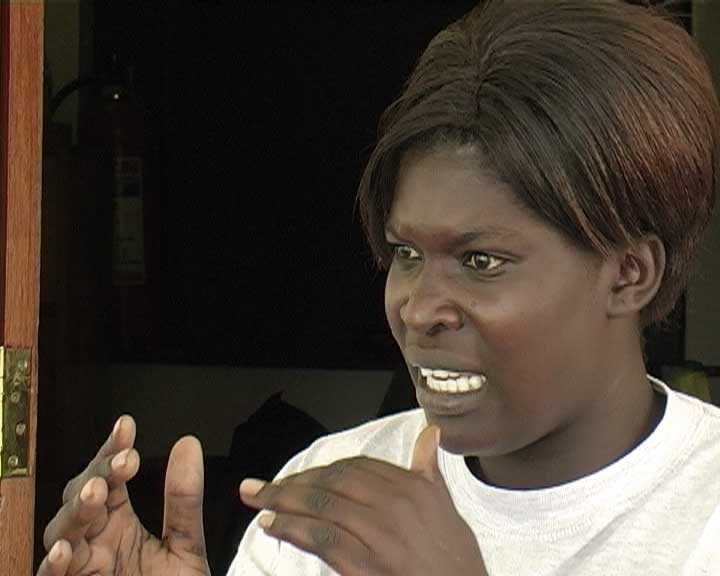 |
Selestine Otom (Gender Based Violence Survivors, Kenya) Geschlechtspezifische Gewalt an Frauen ist in Kenia weit verbreitet. Aus Angst vor gesellschaftlichem Ausschluss schweigen viele Opfer und sind mit ihren Traumata allein. Frauen, die als unfruchtbar stigmatisiert werden, erfahren psychische Gewalt, die kaum wahrgenommen wird. Eine kinderlose Frau wird regelrecht beschimpft, die Leute sagen, sie wäre unbrauchbar und nutzlos. Und in manchen Fällen werden Frauen sogar verstoßen, weil sie nur Mädchen zur Welt gebracht haben, die Familie aber einen Jungen bevorzugt. |
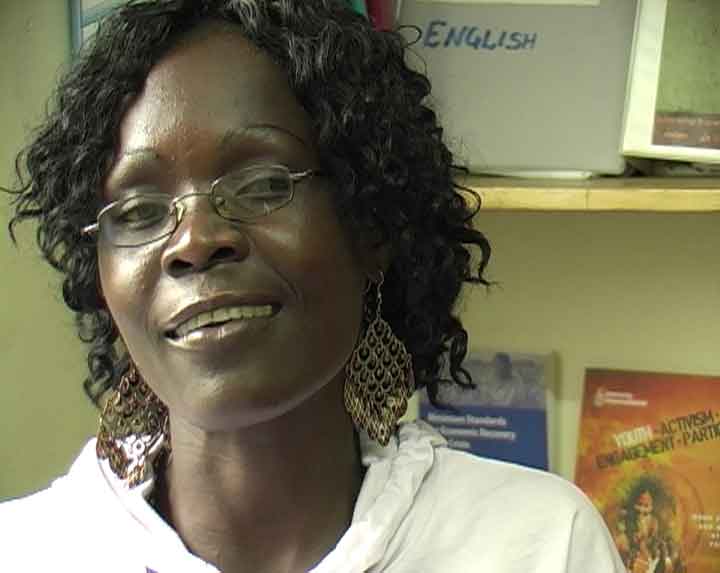 |
Maureen Akinyi about traditions Some traditions, we don't have to follow them. |
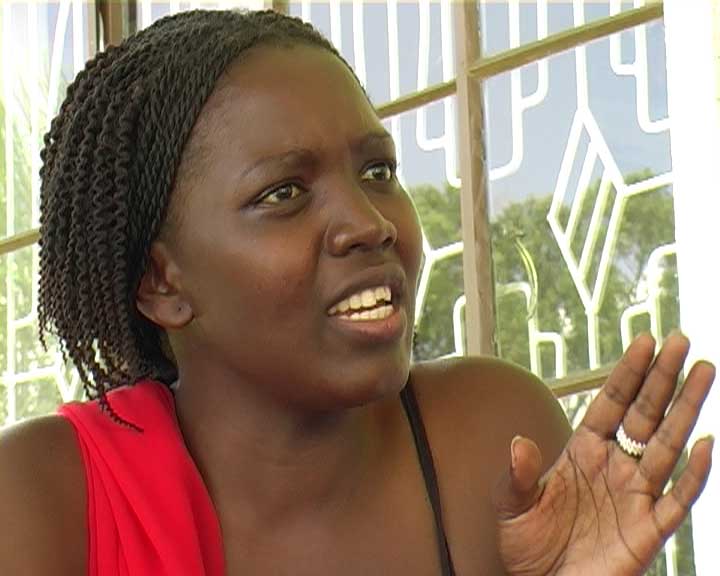 |
Terry Mbakaya & Susan Wanyonyi about men Susan I think HIV and Aids doesn't discriminate who is who. When you have not protected yourself, it hits you. Terry But there are men who ... I don't know how I can call them ... sluggards. Sluggards or I don't know! Susan Stiff-necks, they are stiff-necks, they cannot be turned!&xnbsp; |
 |
Liz Muliro on gender hierarchy But you find that in our African culture women are always under men! And that thing has made men really to be so proud of them to say: "After all there is nothing that a woman can tell me! I am above her! It's me who married her! She came to my home, she doesn't own anything here! So in anything she has just to follow my orders. |
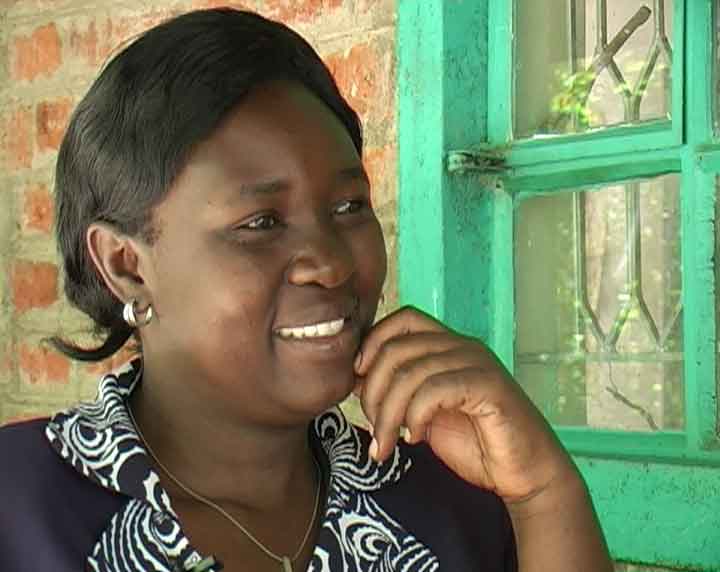 |
Rose Onsare (FIDA - Federation of Women Lawyers, Kenya) We have been consulting, we have been actually participating actively, we have been giving our opinion as far as those sections are concerned in the constitution what the women's stake is. Because we usually would collect views from our members and women's groups all over the country and then put them together and submit to the Committee of Experts to look at (…) and then to compare it with the new draft constitution. So we are actually very involved in the process of constitution making in the country! |
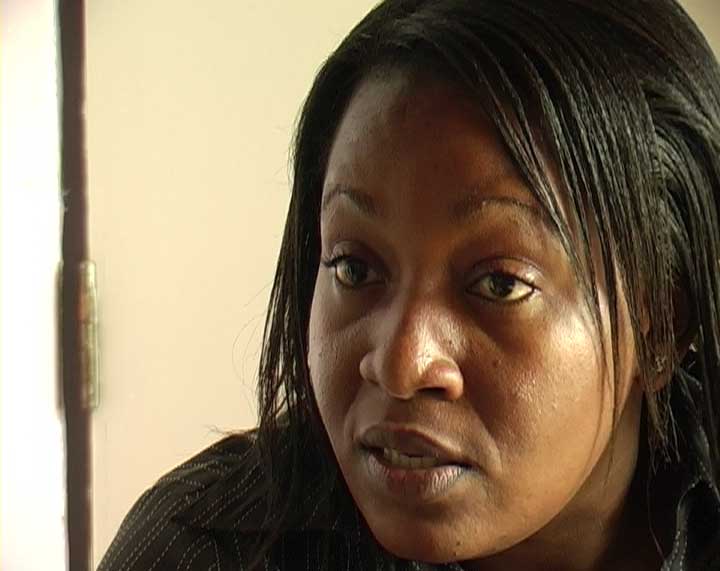 |
